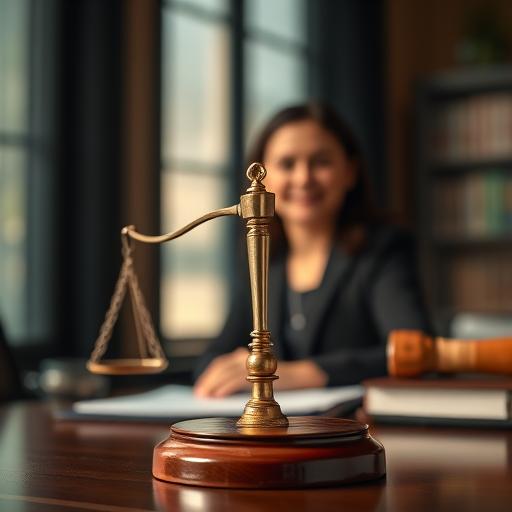Finding yourself in need of legal defense is a serious and often stressful situation. The choice you make for your legal representation can have a profound impact on the outcome of your case. That’s why selecting from the best criminal lawyers edmonton has to offer is not just a good idea—it’s an absolute necessity. Your lawyer is your advocate, your guide, and your protector through the complexities of the justice system.
This guide is designed to help you identify the key qualities of a great criminal defense lawyer. We’ll walk through the essential factors to consider, from local courtroom experience to transparent billing practices. Making a well-thought-out choice now can give you peace of mind and a stronger position for your case ahead. Let’s get started. 👍
The Importance of Local Edmonton Experience
When you’re facing charges in Edmonton, you want a lawyer who knows the local legal environment inside and out. A lawyer with deep roots in the city’s court system brings a unique advantage. They are familiar with the local crown prosecutors, the judges, and their individual tendencies, which can be invaluable when building a defense strategy or negotiating a plea.
This local knowledge extends beyond just the people involved. An Edmonton-based lawyer understands the specific procedures and unwritten rules of the local courthouses. This familiarity can help prevent procedural errors and ensures your case moves as efficiently as possible through the system. They are part of the local legal community, and that connection can make a big difference.
Verifying Credentials and Disciplinary History
Before you commit to any lawyer, it’s wise to do a background check. All practicing lawyers in Alberta must be members in good standing with the Law Society of Alberta. You can easily check a lawyer’s status on the Law Society’s website, which will also show any public disciplinary history.
A clean record is a good sign of professionalism and ethical conduct. You are placing your future in this person’s hands, so you deserve to know they have a history of upholding their professional responsibilities. Don’t be shy about confirming their credentials; a reputable lawyer will expect and respect your thoroughness.
Communication Style and Availability
Effective communication is the bedrock of a strong lawyer-client relationship. During your initial meeting, notice how the lawyer speaks to you. Do they explain complex legal concepts in a way you can understand, or do they use confusing jargon? A great lawyer will ensure you are always clear on what is happening with your case.
Availability is just as important. Ask them about their policy on returning calls and emails. You need a legal representative who is accessible and responsive, especially when you have urgent questions or concerns. Feeling like you’re in the dark is an unnecessary source of anxiety during an already difficult period. 😟
Understanding Their Fee Structure 💰
Legal representation is an investment, and you have a right to understand exactly what it will cost. Ask potential lawyers to explain their fee structure upfront. Some may charge a flat fee for certain types of cases, while others work on an hourly rate. It’s also common for a lawyer to request a retainer, which is an upfront payment they draw from as they work on your case.
Whatever the arrangement, insist on getting it in writing. A detailed fee agreement should outline all costs, including administrative fees, expert witness charges, and other potential expenses. Transparency about finances from the start prevents misunderstandings and financial surprises down the road, allowing you to focus on your defense.
The Value of Client Testimonials and Reviews
What past clients say about a lawyer can offer incredible insight into what you can expect. Look for reviews and testimonials online on platforms like Google, law-specific directories, and the lawyer’s own website. Reading about others’ experiences can give you a feel for the lawyer’s professionalism, communication, and effectiveness.
Pay attention to patterns in the feedback. Are clients consistently praising the lawyer’s dedication and positive results? Or are there recurring complaints about poor communication or a lack of attention? While one negative review might be an outlier, a string of them could be a red flag. Let the experiences of others help guide your choice.
Gauging Their Courtroom Confidence
While many criminal cases are resolved outside of a trial, you need a lawyer who is ready, willing, and able to fight for you in court if necessary. During your consultation, ask about their trial experience. A lawyer who is comfortable and confident in a courtroom setting is a powerful asset to have on your side.
This confidence often comes from years of hands-on litigation experience. A seasoned trial lawyer knows how to cross-examine witnesses, present evidence effectively, and make persuasive arguments to a judge or jury. Their composure under pressure can be a stabilizing force for you and a formidable challenge for the prosecution. ⚖️
The Initial Consultation: Your Chance to Interview Them
The initial consultation is more than just a chance for the lawyer to learn about your case; it’s your opportunity to interview them. Come prepared with a list of questions about their experience with cases like yours, their initial thoughts on a defense strategy, and who exactly will be handling your file.
Trust your instincts during this meeting. You should feel comfortable with the lawyer and confident in their abilities. A strong rapport is essential, as you’ll be working closely together on a very personal and critical matter. Choose the lawyer who not only has the right qualifications but also makes you feel heard and respected.
